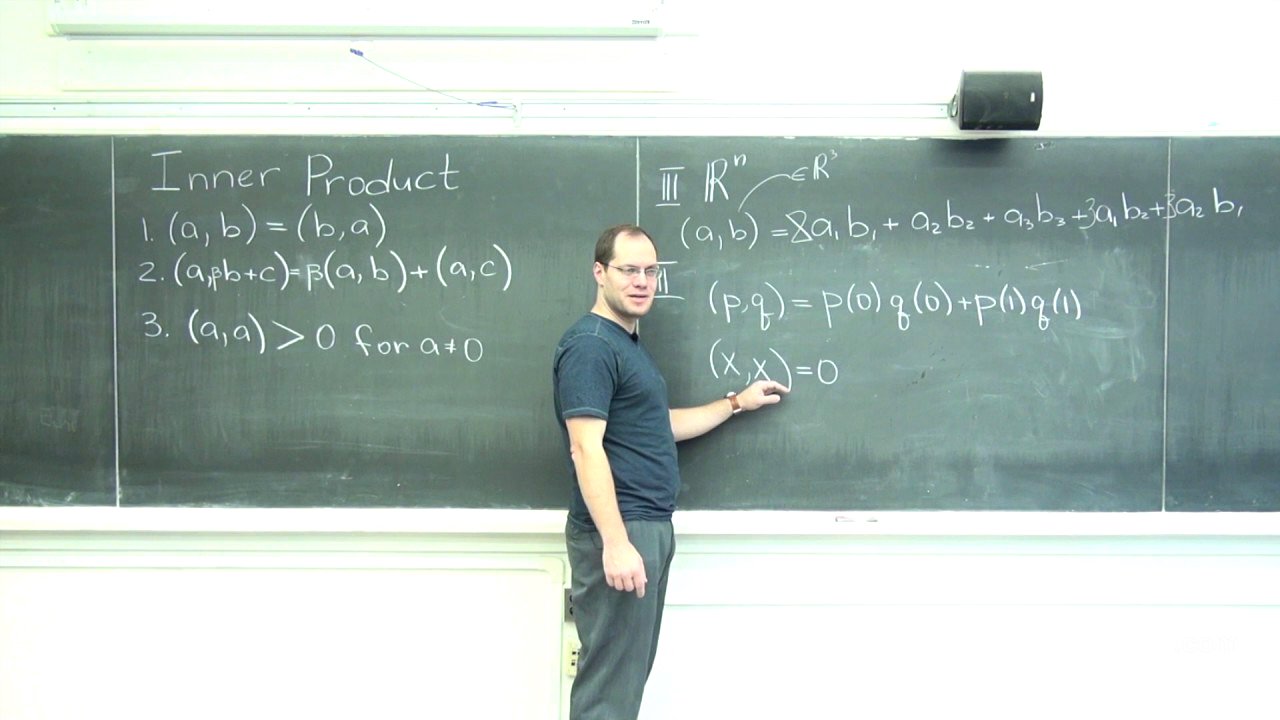TLDR;
The video explores the concept of inner products using polynomials as examples. It begins by examining a potential inner product defined as the product of two polynomials evaluated at zero. The discussion covers the properties required for an inner product, such as commutativity, distributivity, and positive definiteness, and demonstrates how the initial example fails the positive definiteness test. The video also touches on how restricting the space of polynomials can affect whether a definition qualifies as an inner product, and draws a parallel between evaluating polynomials at infinitely many points and integration.
- A potential inner product defined as the product of two polynomials evaluated at zero is not positive definite.
- Restricting the space of polynomials can affect whether a definition qualifies as an inner product.
- Evaluating polynomials at infinitely many points is similar to integration, which brings positive definiteness back.
Testing P(0) * Q(0) as a Potential Inner Product [0:00]
The video starts by considering whether the operation P(0) * Q(0) qualifies as an inner product for polynomials P and Q. This operation takes two polynomials, evaluates them at zero, and multiplies the results, producing a number. The properties of an inner product are then examined, starting with commutativity (or symmetry), which the operation trivially satisfies. Distributivity is also confirmed by considering the mechanics of evaluating Q as a sum of two functions.
Failure of Positive Definiteness [0:52]
The key property of positive definiteness is tested, and it's shown that P(0) * P(0) is not always positive. For example, if P(x) = x, then P(0) = 0, and P(0) * P(0) = 0, violating the positive definiteness requirement. Attempts to fix this by modifying the polynomial (e.g., x^2 - x) also fail, as other polynomials can be constructed to yield zero when evaluated using this operation.
Inner Product on a Restricted Space [3:30]
The discussion introduces a subtlety: the same definition can be a legitimate inner product on a particular space but fail positive definiteness on a wider space. For instance, if the space is limited to quadratic polynomials, the previous counterexamples (which required cubic polynomials) are no longer valid. A quadratic polynomial cannot pass through three zeros, making the definition a valid inner product on this restricted space.
Connection to Integration and Positive Definiteness [4:13]
The video draws a parallel between evaluating polynomials at discrete points and integration. If infinitely many points are used (akin to an integral), positive definiteness can be restored, at least among reasonably continuous functions. An integral is like an infinite number of sums, and this brings positive definiteness back.









